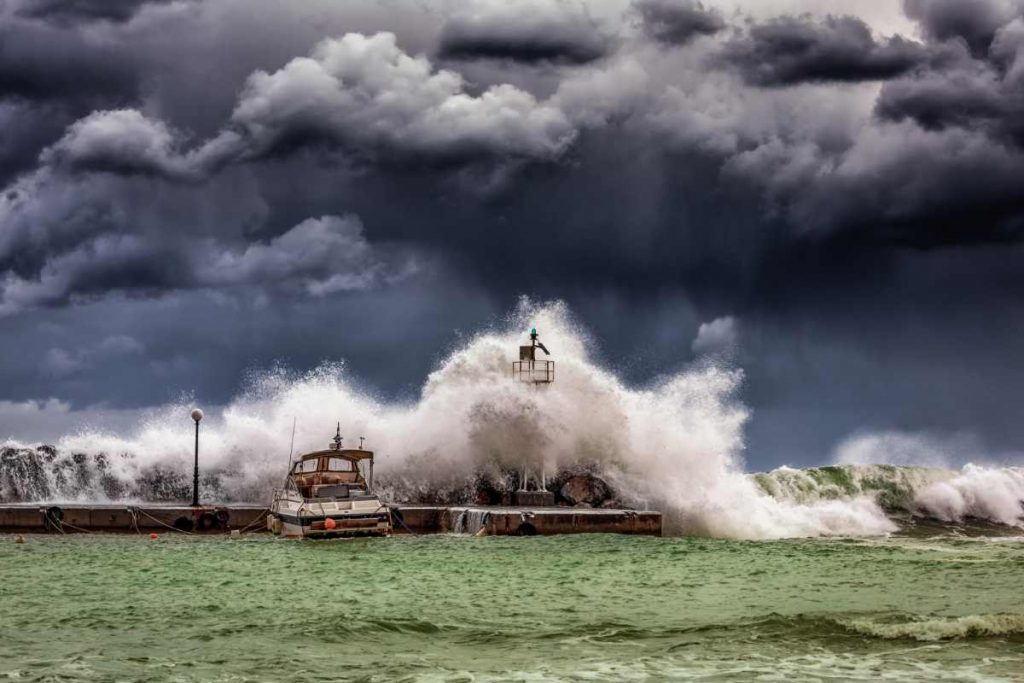By the turn of the century, some coastal cities may be facing extremely high water levels each year.
The news has been full of weather and extreme weather conditions in recent months. Think record-high temperatures in Sicily, floods in Germany and the southern Netherlands, and wildfires in Siberia and Greece. Such events were rare a few decades ago, but now they seem to be happening more and more often. Researchers say the same is true for exceptionally high water New study. Because we will suffer from that a lot in the future.
Exceptionally high water
We know that the Earth is warming right now. This goes hand in hand with rising sea levels and rising waters. But what exactly should we count on? In a new study, researchers focused specifically on preventing exceptionally high water from a combination of tides, waves, and storm surge. They have identified the potential consequences of rising temperatures between 1.5 and 5 degrees Celsius. The results are very disturbing.
100 times more
The study predicts that as a result of rising temperatures, exceptionally high water will be 100 times more common in half of the 7,283 sites surveyed by the end of the century. This means that by the end of the century, many coasts will have to rely on extremely high water levels on average each year. The researchers conclude that floods will therefore become more common worldwide as the Earth warms. Extreme events that previously only happened once every hundred years will now be able to appear annually.
Global Warming
The earth no longer has to warm up much for that. “One of the key questions in this study was: How much warming would it take to see events that occur again every 100 years annually?” Study leader Claudia Tibaldi says. “Our answer is: Not much more than what has already been documented.” Currently, the Earth has already warmed by about 1 degree Celsius since pre-industrial times. If another half of a degree is added, we will already see the dire consequences for water levels.
true?
The researchers also identified the areas most affected by exceptionally high water levels. The results showed that the tropics and the southern hemisphere in particular will be the victims. More specifically, regions along the Mediterranean, the Arabian Peninsula, the southern half of the Pacific coast of North America, and areas such as Hawaii, the Caribbean, the Philippines, and Indonesia will need to prepare. In many of these areas, sea level is expected to rise faster than at higher latitudes.
Fortunately, you don’t have to worry much in Holland. “In the short term (this century) we won’t see much of it in Holland,” he said. Researcher Roderik van de Wal already told Scientias.nl. “We are already used to having very large differences in the water level. And if you are well protected, the effect will be very small. However, areas where you use some of the differences due to tides and storms are the hardest hit. The chance of water levels rising faster in those areas increases. Regions “.
According to the researchers, the results of this study are not really surprising. “It’s no big news that even with a 1.5-degree increase in temperature, sea level rise would be dramatic and have major impacts on the frequency and volume of rising waters,” Tibaldi said. However, the study provides further insight into the situations we may encounter. “The study provides a more complete picture,” Tibaldi continues. “We were able to study a wider range of temperatures in more detail.”
The team calls for more research to understand exactly how the changes will affect specific communities. They noted that the physical changes their study described could have different effects at the local level, depending on several factors. Think, for example, about the exposure of certain places to rising waters or how willing people are to change. Our studies and similar studies are recommended by policy makers. They will then have to improve coastal protection or consider mitigating measures. Building dams and maritime defenses and implementing early warning systems are some of the steps that can be taken to help us adapt.”

“Coffee buff. Twitter fanatic. Tv practitioner. Social media advocate. Pop culture ninja.”











More Stories
Which can cause an increase in nitrogen.
The Central State Real Estate Agency has no additional space to accommodate Ukrainians.
The oystercatcher, the “unlucky national bird,” is increasingly breeding on rooftops.